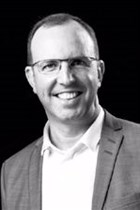
Top stories






More news

Marketing & Media
Ads are coming to AI. Does that really have to be such a bad thing?














Look at the fact that the “total contribution of entities and organisations within the creative industries sector is between R90bn and R107bn in direct output (turnover) per annum”, and you’ll begin to see that creativity unlocks business performance.
But how? How can creativity change the world via economic - or social - value?
Good creative agencies understand how to get a customer to buy their client’s product rather than someone else’s. If this isn’t a CEO’s greatest concern, I don’t know what is. But the problem is, so many companies look to advertising agencies only to ‘make ads’, which is like using a Swiss Army Knife only for the corkscrew.
Companies should remember that advertising agencies, at their core, are problem-solvers. Commercial psychologists, if you will. Our job is to shift perception and to create demand for a product, service and brand. The first law of economics talks to supply and demand, and we can create that demand by leveraging product innovation and then building relevance, consideration, re-appraisal and ‘loyalty’.
Way back when, Volkswagen briefed its agency, Rightford, Searle-Tripp & Makin, to develop a brand called the Econo Golf. The agency, where I later worked for many years, didn’t come up with just an advertising solution, but an entirely new idea.
We re-branded the old shape as the ‘Citi Golf’ in three bright primary colours and launched it as the antidote to humdrum, promising drivers that they’d “Get the freedom of the Citi”. This paint job, together with minor trim adjustments, allowed the Citi Golf to dominate its category for 24 years, selling over R13bn in cars. Think of the jobs created by R13bn in sales, just based on this one idea.
Years later, when we were launching takealot.com at M&C Saatchi Abel, we realised that the brand needed a powerful distribution solution, so we introduced takealot to Mr Delivery. The drivers were busy over meal times, but had huge capacity outside of those hours to deliver takkies, TVs, books and other items. It didn’t take long for takealot to acquire Mr Delivery and the rest, as they say, is history. That’s the value of a creative idea.
When I sat on the Ogilvy Global brains trust, we were asked to define a new central organising thought for the Group. This was our belief that brands don’t only need to grow off a Big Idea, but also off a Big Ideal: something that can change the world.
The work we had done on Dove, out of Canada, inspired us. Dove as a brand came to stand not just for the extra-moisturising properties that could be found in soap, but also for the celebration of natural, uncontrived beauty. This brand ideal had a profound psychological effect on how women across the world felt about themselves.
Locally, the M&C Saatchi Abel concept of the Street Store shows how it’s possible to tackle society's more urgent challenges. We created the world’s first rent-free, premises-free, free pop-up clothing ‘store’ for the homeless - using four posters and an open-source website: thestreetstore.org.
This emerged from the simple idea of providing the homeless with a genuine (free) shopping experience, to bring dignity to receivers and fufilment to givers. Today, almost every day, a Street Store happens somewhere in the world, clothing many hundreds of thousands of homeless individuals.
I believe that the ad industry has done itself a disservice by focusing on ‘award-winning opportunities’ rather than on solving hard problems in brilliantly creative ways. (In fairness, though, many clients are fearful of truly imaginative solutions.)
Look at the Dumb-Ways-To-Die campaign, which did far more for raising awareness of railway safety than any serious message could have. Locally, look at the Hollard DareDevil Run, where men run a race in tiny purple Speedos, to show their support of testicular cancer. The secret is in entertainment and in being brave.
Is there a country we could emulate with regard to harnessing creativity for economic/social good? Absolutely. I’m sure there are many. But South Africa doesn’t have to look further than South Africa. We have world-class talent here.
